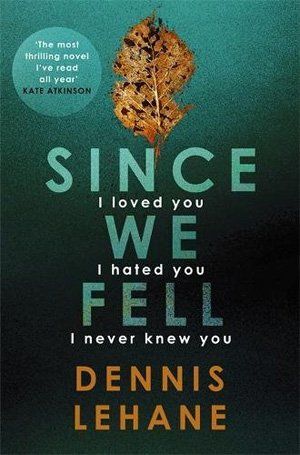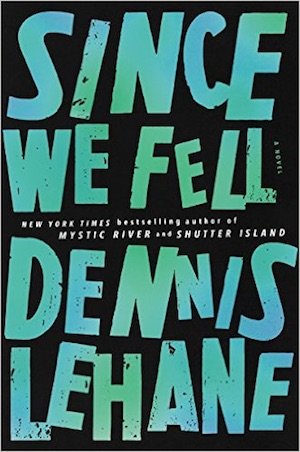 Written by Dennis Lehane — Rachel Childs shoots her husband dead on a boat in Boston harbour in the opening sentence of Since We Fell, the latest from bestselling author Dennis Lehane. As he breathes his last, an array of thoughts and emotions pass through her mind.
Written by Dennis Lehane — Rachel Childs shoots her husband dead on a boat in Boston harbour in the opening sentence of Since We Fell, the latest from bestselling author Dennis Lehane. As he breathes his last, an array of thoughts and emotions pass through her mind.
One of those thoughts is to her mother, a famous author who has been dead for some time. Elizabeth Childs’ best-selling marriage book The Staircase pops into Rachel’s head and as her husband falls overboard into the water she tries to figure which chapter would best apply to the scene at hand.
Set in Boston and around New England, Since We Fell is Dennis Lehane’s 12th novel. The author known for the bestsellers Live By Night; Gone, Baby, Gone; Mystic River; and Shutter Island. His latest is a domestic psychological thriller that follows Rachel Childs back through time as she pieces together the mystery of who her absent father was and her mother’s life before she was born, and slowly finds her way into a conspiracy that borders on madness.
Lehane breaks the story into three sections, the first covering the time period from 1977-2010. We learn about Rachel’s childhood. Her mother’s burgeoning academic career and the success she experiences with the publication of The Staircase figures heavily over her young life. The hole of Rachel’s absent father is felt in the early pages. Lehane balances clarity, almost tangible emotion and good storytelling to make the domesticity of the opening engaging.
Rachel’s mother dies before she gets a chance to reveal to her father’s identity, leading her to years of sleuthing to find her dad. This mystery is a central piece of her life and the early book. In the process, she meets her future husband. The interplay between the murder at the opening and Rachel’s earlier life makes it feel as if you are watching a car crash in slow motion. And you wonder how the backstory that the novel is composed of will speak to or reveal the significance of the scene in the boat.
The second section follows Rachel into her early 30s – a marriage and a promising career. But she sabotages her career and derails her life. The causality of this feels loosely connected to the backstory in the opening section, but the pace of the middle section is off, and Since We Fell slows down, drags, and eventually slides off the rails.
Little happens outside of Rachel’s head for a decent part of the narrative and the impetus for many of protagonist’s actions really aren’t clear. It begins to feel disconnected from the book you started.
The story does eventually pick up again Rachel’s paranoia is validated and it gives nothing away to say that her husband is not who he seems to be. From that point on the book figures out it’s a crime novel and is compelling enough. However, much as the middle section feels alien to the opening, the ending is also disconnected and the result is a total mess. What we’re told early on just doesn’t seem to inform the later story. You are left anxiously awaiting for the threads to come together and outside of assuming that the backstory informs the rest, there is nothing here to pull all of the pieces together.
Lehane’s Since We Fell is a slight deviation for the writer. His books Mystic River (2001), Shutter Island (2003), and World Gone By (2015) all used psychology to drive their narratives. He was successful with those books in creating a tension and psychological drama that paid off. But Since We Fell feels at best a cursory attempt to jump on the bandwagon and write a book to appeal to the Gone Girl and The Girl on the Train domestic noir market in time for summer.
Little, Brown
Print/Kindle/iBook
£9.99
CFL Rating: 2 Stars














This is a very accurate summary of this book. A disappointing release from a much admired author.